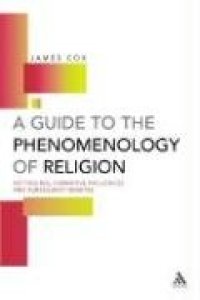
This book provides an introduction and overview to the Phenomenology of Religion through describing, analysing and evaluating the ideas of key thinkers in the phenomenology of religion. At the same, the author places the ideas of the key thinkers identified into historical and social contexts by examining the formative influences over their thinking and by indicating how their ideas have helped to create the debates at the core of religious studies today. The book's focus on the phenomenology of religion confirms the central and even overriding, role phenomenology has played in shaping religious studies as a discipline distinct from theology, sociology or anthropology. Having traced background factors drawn from philosophy, theology and the social sciences, the author examines the thinking of scholars within the Dutch, British and North American 'schools' of religious phenomenology. Many of the severe criticisms, which have been levelled against the phenomenology of religion during the past twenty-five years by advocates of reductionism, are then presented and analysed. The author concludes by reviewing alternatives to the polarised positions so characteristic of current debates in Religious Studies before making a case for what he deems a 'reflexive phenomenology'.
Download the book Guide to the Phenomenology of Religion for free or read online
Continue reading on any device:

Last viewed books
Related books
{related-news}
Comments (0)